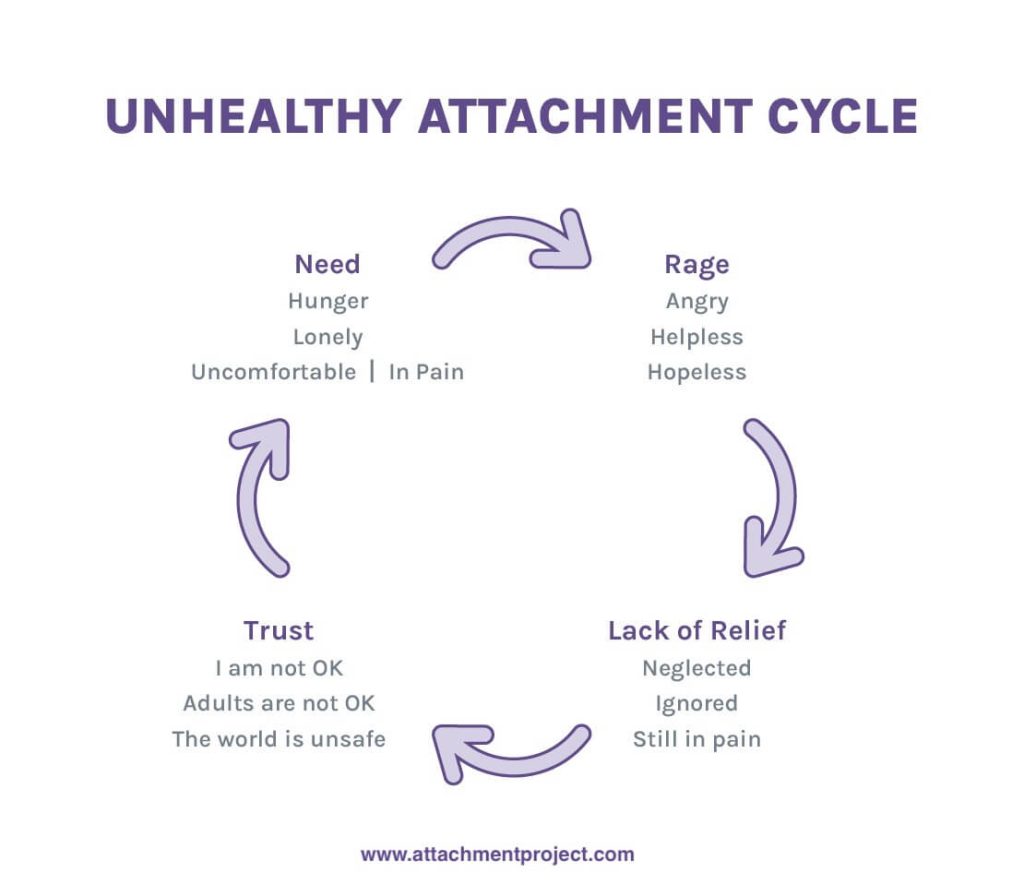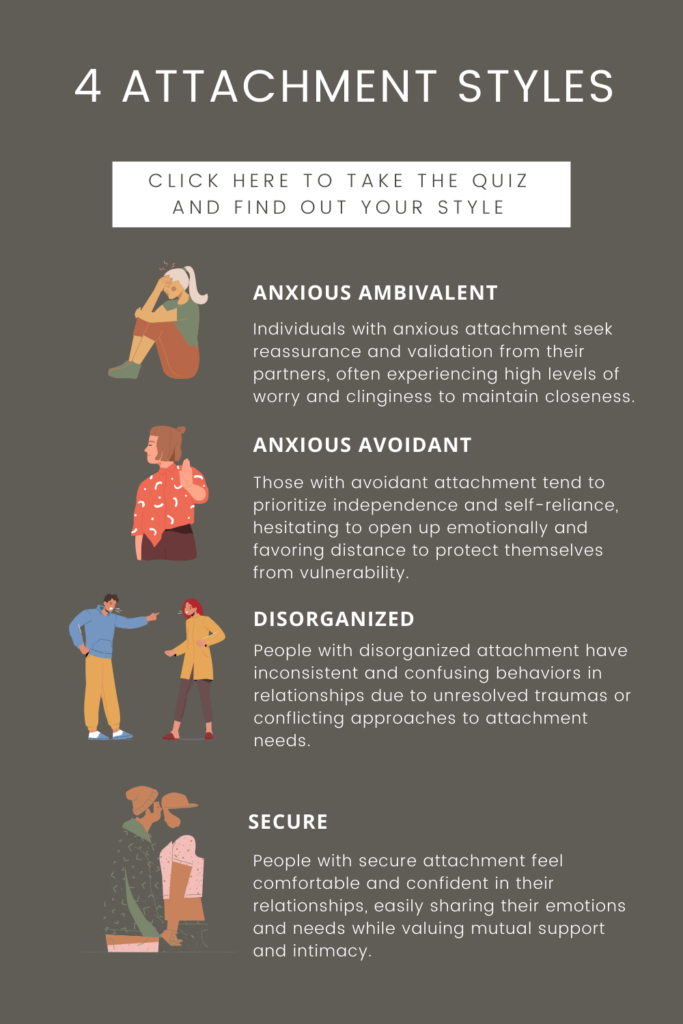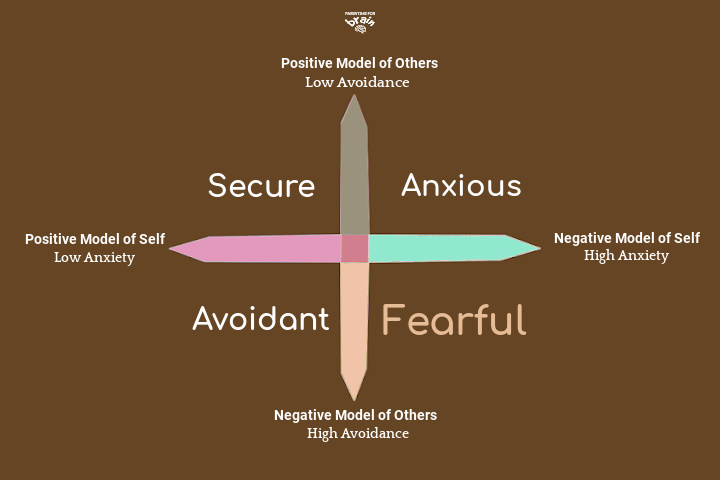Antwort How do you fix anxious-avoidant attachment? Weitere Antworten – How do you fix an anxious-avoidant attachment

How can you fix an anxious attachment style
- Recognizing the signs and understanding attachment theory.
- Practice learning from others with a secure attachment.
- Build your self-esteem and, in turn, how to express your needs and emotions authentically.
- Learn to not react by using self-regulation and mindfulness.
- Therapy.
People with anxious-avoidant attachments are the opposite of needy. Instead of wanting to be emotionally close, they avoid connecting with others. They might rely on themselves, crave freedom, and find emotions to be difficult. Your parents were probably unavailable as a child.Anxious-avoidant relationships can work, but sometimes couples are simply incompatible.

Can avoidant attachment be fixed : However, the good news is that avoidant attachment can be healed, and individuals can develop more secure, fulfilling attachment styles through effort and support.
How do you fix anxious-avoidant style
How to Heal Avoidant Attachment Style
- Understand the Origin of Your Avoidant Attachment.
- Find a Mentor to Help You Practice Communication.
- Use Affirmations to Start Healing Your Inner Child.
- Learn How to Regulate Your Nervous System.
- Don't Take It Personally.
- Gently Encourage Therapy.
- Approach Your Relationship as a Team.
Do anxious avoidants regret breaking up : Yes, those with an avoidant attachment style can regret breaking up. But they probably won't show it. You see, Rolling Stones are scared of intimacy, but they also fear being seen as weak or unworthy. (And in fact, part of their intimacy issues stems precisely from worrying that loved ones will perceive them that way!
The answer is yes; fearful-avoidants have the capacity to love, just like anyone else. However, their attachment style may influence the way they express and experience love in their relationships. The challenge that fearful-avoidants face isn't falling in love, but remaining in love.

If your avoidant partner opens up to you, reciprocates or initiates PDA, or tries to bond with you, they may be in love with you. An avoidant in love will commit to the relationship. They'll claim you as their partner and they'll introduce you to friends and family.
What heals avoidant attachment
Self-reflection and self-awareness
It can be hard to look at how you are showing up in relationships, but becoming more aware of your patterns is essential to healing avoidant attachment. You also need to build your self-awareness about how you feel around intimacy, and how you feel in general.A therapist is great for this, since they have some degree of clue as to what's going on and also a commitment to putting your growth at the center of the process. But you can also address avoidant attachment with a non-therapist intimate partner, so long as they have the right qualities.It can create barriers that prevent us from receiving love, often leading to self-sabotage in relationships. The transition from needing constant reassurance (anxious attachment) to emotional distancing (avoidant attachment) is a common pattern that can emerge from this belief.

Learning to manage an anxious attachment style may be achieved by recognizing your specific relationship style, using coping skills, setting boundaries, understanding negative emotions, and talking to a therapist.
What do Avoidants do after a breakup : An avoidant individual's experience of a breakup often starts with a 'deactivation' of feelings, which is a subconscious strategy to protect themselves from feeling the pain of the feelings, often focusing on the flaws of their ex to 'justify' why they shouldn't be feeling sad about it and will repress any feelings of …
Do anxious avoidants miss you : Fearful-avoidant individuals, like anyone else, can experience a range of emotions, including missing someone. However, their attachment style can influence how they express and deal with those feelings.
Do avoidants like kissing
Individuals with a dismissive avoidant attachment style tend to struggle with closeness, emotional intimacy, and vulnerability. They tend to crave independence, meaning that acts of intimacy like kissing can be particularly difficult for them.

When you are ready to talk, remember to be honest and direct about your feelings. Don't beat around the bush or try to hide your feelings. Simply tell the other person that you love them and why. Even if they don't reciprocate your feelings, they will appreciate your honesty.Be dependable. Avoidant personalities often feel like they can't rely on anyone. By showing your partner that you're reliable and dependable, they're much more likely to trust you. Make sure that you always keep your word, and be 100% honest with your partner.
How do you break the cycle of avoidant attachment : How to stop the anxious-avoidant cycle
- View the situation without judgement. If you're stuck in the anxious-avoidant dating trap, Dr.
- Focus on repair after conflict.
- Embrace your needs.
- Let your partner meet those needs.



